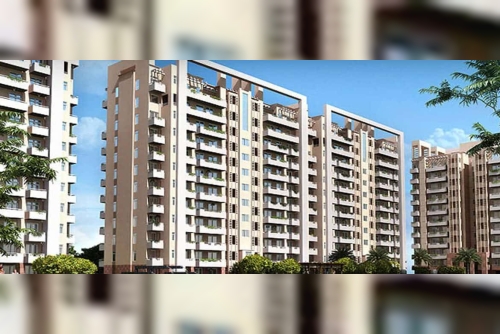In today’s hyper‑connected world, smartphones, social media, streaming services and gaming can offer convenience, entertainment and productivity. But when does what starts as casual use become a harmful dependency? If you live in Pune and find your digital usage interfering with daily life, it might be time to consider digital dependency rehab in Pune. This article explores warning signs, what rehab involves, local resources, and when taking the serious step of rehab is appropriate.
What Is Digital Dependency?Digital dependency (also called smartphone addiction, internet addiction, or technology addiction) refers to an unhealthy overreliance on digital devices, platforms or content, such that it causes measurable harm in areas like:
Mental health (anxiety, depression)
Physical health (sleep, vision, posture)
Social & relational life (neglecting relationships)
Productivity or academic/job performance
While there’s not yet a universal diagnostic standard in many places, research and rehabilitation centres are recognizing this as a real problem. For example, proposed criteria for internet addiction include:
Spending at least 6+ hours daily on non‑essential internet use over several months
Impairments in psychosocial or occupational functioning due to internet use.
Signs That It’s Time for RehabYou might try reducing screen time, disabling notifications, or going for a digital detox. But if these efforts repeatedly fail, or if the negative effects keep growing, you should consider more structured help. Here are signs to watch out for:
Repeated unsuccessful attempts to cut down
If you often say “I’ll just check a little” and get pulled in for hours; if you plan to limit use but can’t follow through.
Physical symptoms
Eye strain, headaches, neck/back pain from looking down (tech neck), wrist pain, fatigue. Disturbed sleep (sleeping late due to scrolling).
Emotional & mental distress when not using digital devices
Anxiety, irritability, restlessness, mood swings or feeling socially isolated even though you’re “connected”. Fear of missing out (FOMO) or nomophobia (fear of being without phone).
Functional impairment
Loss of academic or work productivity. Falling grades or missed deadlines. Neglecting responsibilities at home. Skipping in‑person social interactions. Strains in relationships due to overuse.
Psychological comorbidities
If digital dependency coexists with sleep disorders, depression, anxiety, ADHD, or obsessive‑compulsive traits. When these intensify, professional intervention becomes more necessary.
Failed self‑help / relapse cycles
Tried detoxes, mindfulness, setting screen limits, but you keep “slipping back” into old behaviour patterns and the usage escalates again.
Safety concerns or risk
Using devices in unsafe situations (while driving), staying up extremely late causing health damage, risky online behaviour (excessive sharing, exposure to harmful content).
If you choose rehab, what does the process look like (broadly)? What kinds of support are offered in Pune?
Assessment & Diagnosis: Mental‑health professionals evaluate severity, comorbid conditions (anxiety, depression), and your pattern of use.
Psychotherapy / Behavioral Therapy: Cognitive Behavioural Therapy (CBT) is common, focusing on identifying triggers, changing unhealthy thought patterns, building coping strategies.
Digital Detox / Controlled Environment: Some rehabs provide residential or semi‑residential settings to temporarily remove or limit access to devices to help reset habits.
Holistic Support: Mindfulness, meditation, yoga, physical activity, nature therapy. These help reduce stress and improve self‑awareness.
Family Counseling: Because family dynamics, home environment and peer influence often play roles. Educating family/friends helps support recovery.
Relapse Prevention and Aftercare: Follow‑ups, plans for maintaining healthy digital habits, peer groups, possibly online or in‑person support networks.
Why Timing MattersDeciding when to go for rehab is crucial. Too early might feel unnecessary to some; too late might mean that the damage has spread to mental health, relationships or career. Key points:
Early intervention leads to better outcomes: When dependency is caught in early‑to‑moderate stages, rehab can be shorter, less disruptive, and more effective.
Prevention of cascading negative effects: Physical health, sleep cycles, mental health issues tend to worsen over time. Delaying rehab might lead to comorbid conditions requiring more complex treatment.
Preserving relationships & social functioning: The longer digital dependency remains unchecked, the harder it can be to repair trust or regain engagement with offline life.
Local Context in Pune: What’s AvailableIf you decide rehab is necessary, Pune has some options and resources to help. Here’s what to know locally:
De‑addiction & Rehabilitation Centres: Pune has multiple centres originally focused on substance abuse, many of which are expanding or considering behavioural addictions. Examples include Unique Foundation De‑Addiction Center, Sanwaad Rehabilitation Center, Jagruti Rehabilitation Centre.
Clinics & Therapists Offering Digital Dependency / Internet Addiction Treatment: Certain mental health clinics in Pune provide CBT focused on internet/smartphone addiction. Also wellness retreats around Mulshi, Lonavala offer digital detox programs.
Dual Diagnosis Rehabs: For people who have coexisting mental health challenges. These centres treat addiction & mental health disorders together, which is important when digital dependency has led to or exacerbated issues like anxiety or depression.
Supportive Wellness Retreats and Alternatives: Even if full residential rehab isn’t immediately necessary, weekend or week‑long detox stays in wellness centres near Pune can provide a breathing space.
When Rehab Is Especially RecommendedHere are scenarios when rehab is strongly advisable in Pune:
If digital dependency has become more severe than any self‑care or outpatient therapy can manage — e.g. causing frequent panic, insomnia, or health issues.
If you've tried multiple interventions (digital detox, self‑help, therapy) and still relapse.
If there are safety risks — e.g. screen time while driving, distractions causing accidents; or staying up to extreme hours.
If relationships are breaking down — family, friends, work relationships are being damaged due to device use.
If there’s coexisting mental health diagnosis — e.g. depression, anxiety, OCD — which tends to worsen unless addressed holistically.
If productivity, academic or job performance is at risk and failure to address digital dependency threatens long‑term goals.
How to Choose a Rehab Center in PuneIf you decide rehab is needed, selecting the right facility is important. Consider:
Factor What to Look For Qualified Professionals Clinical psychologists, psychiatrists, counsellors with experience in behavioural addictions. Treatment Approach CBT, mindfulness, digital detox, structured day programs; holistic methods. Environment Comfortable, supportive, safe, possibly quiet or nature‑oriented for detox. Continuity & Aftercare Follow‑ups, relapse prevention, peer support groups, family counselling. Costs & Accessibility Affordability, insurance/networks, location (inside Pune or outskirts), residential vs outpatient. Privacy & Confidentiality Especially important for sensitive issues related to digital use. What to Do If You're Not Ready for Full RehabRehab can be a big commitment. If you're hesitant, here are steps that can serve as earlier interventions:
Try structured self‑help: apps that track screen time, set limits or lock‑outs; turning off notifications; implementing phone‑free zones/time blocks.
Attend therapy sessions (outpatient) with psychologists experienced in CBT.
Join peer support groups or workshops on digital wellness.
Take short detox retreats (weekend or week‑long) to disconnect and reset.
Involve family/friends: ask for accountability and support rather than judgement.
ConclusionDigital dependency isn’t just “bad habit” — when left unaddressed, it can impact mental health, relationships, physical health and productivity. If your life is persistently being disrupted by device use, or if you’ve tried several ways to change but keep returning to the same patterns, then considering rehab in Pune becomes more than just an option — it becomes necessary.
Pune offers several resources: rehabilitation centres, outpatient therapists, digital detox retreats, and clinics willing to work with behavioural addictions. The key is to act early, choose a facility or strategy that fits your needs, and commit — with support — to rebuilding a healthier relationship with technology.
If you like, I can pull together a curated list of digital dependency rehabs in Pune (with contact info, cost ranges, and specialities) that matches different budgets. Would that be useful for you?












